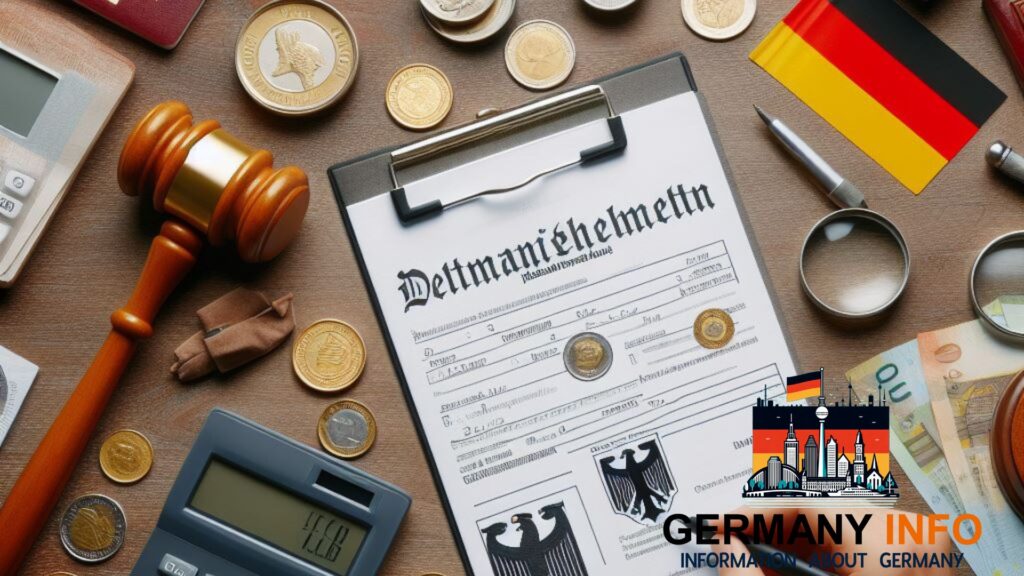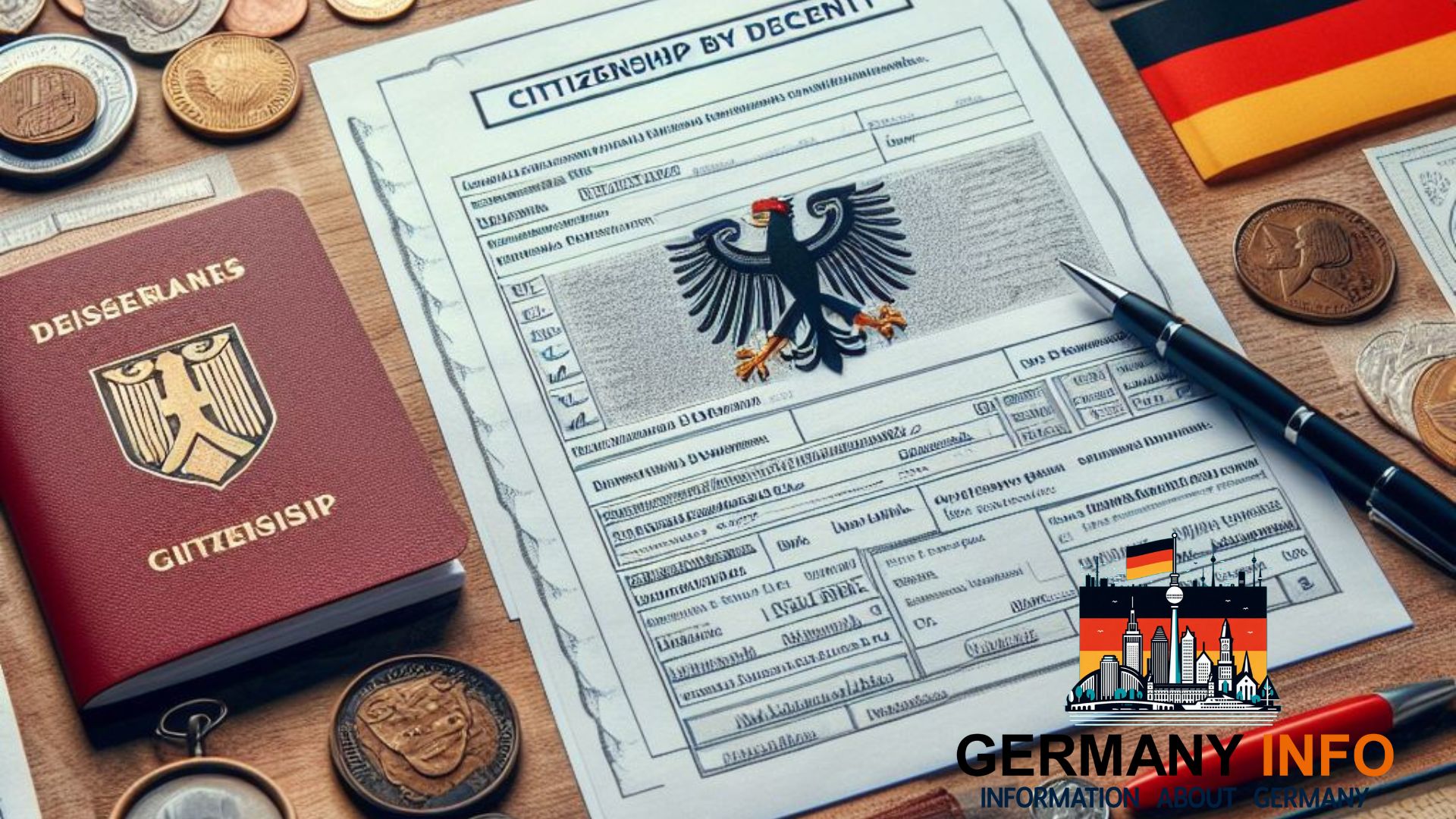Acquiring German citizenship through descent is a pathway available to individuals with German ancestry. This process is appealing due to its potential to reconnect with cultural roots and gain access to the benefits of German and European Union citizenship. In this article, we will explore the eligibility criteria, required documentation, and step-by-step process for obtaining German citizenship by descent.
Understanding German Citizenship by Descent
German citizenship by descent is based on the principle of “jus sanguinis” (right of blood), which means that citizenship is determined by the nationality or ethnicity of one’s parents rather than the place of birth. This principle has been a core aspect of German nationality law for many years.
Eligibility Criteria
To determine eligibility for German citizenship by descent, consider the following key points:
- Parental Citizenship Status: One of the most critical factors is the citizenship status of your parent(s) or grandparents. Generally, if at least one of your parents was a German citizen at the time of your birth, you may be eligible.
- Lineage Verification: You must establish a clear and direct line of descent from a German citizen. This typically involves proving that your parent(s) or grandparent(s) held German citizenship.
- Birth Date Considerations: The date of your birth can significantly affect eligibility. Different rules apply depending on whether you were born before or after specific dates, such as January 1, 1975, and January 1, 2000. For example, children born to a German mother and a foreign father before January 1, 1975, did not automatically acquire German citizenship but may be eligible under certain conditions.
- Legitimacy of Birth: The legitimacy of the birth also plays a role. For children born out of wedlock to a German father and a non-German mother, citizenship may be acquired if the parents subsequently marry or if paternity is legally recognized before the child turns 23.
- Loss of Citizenship: It’s important to verify that the German ancestor did not lose their citizenship before the birth of the descendant. Factors such as naturalization in another country or voluntary renunciation of German citizenship could affect this.
Required Documentation
The application for German citizenship by descent requires various documents to establish the lineage and verify eligibility. Key documents include:
- Birth Certificates: Provide your birth certificate along with the birth certificates of your parent(s) and grandparent(s). These documents must clearly show names, dates, and places of birth.
- Marriage Certificates: If applicable, submit marriage certificates of your parents and grandparents to establish the family lineage.
- Naturalization Certificates: If your ancestor was naturalized in another country, provide their naturalization certificate to determine whether they retained or lost German citizenship.
- German Passports or Identity Cards: Submit copies of German passports or identity cards of your ancestor(s) to prove their German citizenship.
- Proof of Paternity or Legitimacy: For cases involving children born out of wedlock, provide documents proving paternity recognition or subsequent marriage of the parents.
- Affidavits and Declarations: In some cases, affidavits or declarations from family members or authorities may be required to support your application.
Step-by-Step Process
The process of obtaining German citizenship by descent involves several steps:

- Research and Preparation: Start by gathering all necessary documents that prove your lineage and establish your eligibility. This may involve obtaining official records from various authorities and ensuring they are translated into German, if required.
- Consult with German Authorities: Contact the nearest German consulate or embassy to confirm the specific requirements and procedures for your case. They can provide guidance on the necessary forms and documentation.
- Submit the Application: Complete the application form for German citizenship by descent. Ensure that all required documents are included and properly authenticated. Submit your application to the relevant German authority, typically the consulate or embassy in your country of residence.
- Verification and Processing: The German authorities will review your application and verify the provided information. This process may take several months, so be prepared for a waiting period.
- Decision and Notification: Once your application is processed, you will receive a decision. If approved, you will be granted German citizenship and may receive a certificate of citizenship.
- Apply for a German Passport: After obtaining citizenship, you can apply for a German passport, which allows you to enjoy the full benefits of German and EU citizenship, including the ability to live, work, and travel freely within the EU.
Potential Challenges and Considerations
Obtaining German citizenship by descent can be complex, and several challenges may arise:
- Document Availability: Locating and obtaining the necessary documents, especially from older generations, can be difficult. Records may be incomplete, lost, or not easily accessible.
- Legal Nuances: The legal framework governing citizenship by descent is intricate, with different rules applying based on specific dates and circumstances. It’s essential to understand these nuances and seek professional advice if needed.
- Language Barriers: Documents not originally in German may need official translation, adding to the complexity and cost of the application process.
- Time and Patience: The process can be time-consuming, requiring patience and persistence. Delays may occur during the verification and processing stages.
Benefits of German Citizenship
Obtaining German citizenship through descent offers numerous benefits:
- European Union Citizenship: German citizenship grants you the right to live, work, and travel freely within the EU. This opens up opportunities for education, employment, and residence in any EU member state.
- Social and Economic Benefits: As a German citizen, you have access to Germany’s robust social security system, healthcare, and educational opportunities.
- Cultural Reconnection: Citizenship by descent allows you to reconnect with your cultural heritage and strengthen your ties to Germany.
- Political Rights: German citizens can participate in the democratic process by voting in federal, state, and local elections and standing for public office.
German citizenship by descent is a valuable pathway for individuals with German heritage to reclaim their ancestral roots and enjoy the benefits of German and EU citizenship. While the process can be complex and requires meticulous documentation, the rewards are significant. By understanding the eligibility criteria, gathering the necessary documents, and following the outlined steps, you can navigate the process and achieve your goal of becoming a German citizen.

